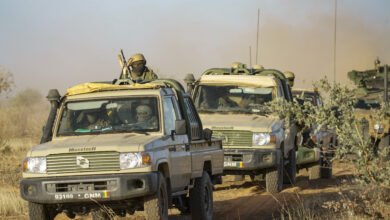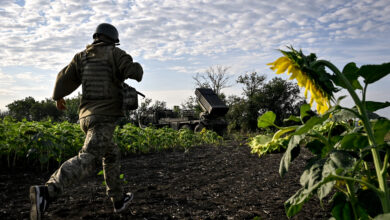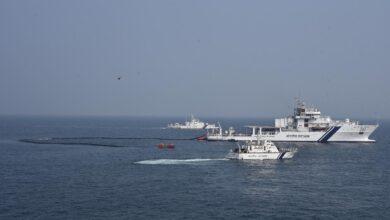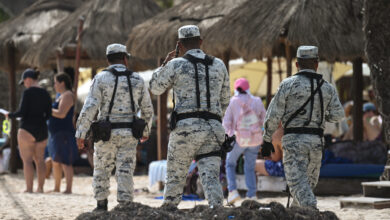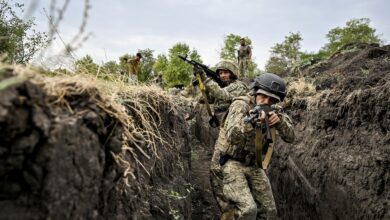Two UN peacekeepers were killed and at least nine others injured in two attacks in central and northern Mali on Saturday, October 27.
The U.N.’s Minusma mission in Mali said in a statement that blue helmets had “repelled a complex attack” at dawn at its base in Ber, in the Timbuktu region, launched from several pickup trucks armed with rocket launchers and machine guns, and others “loaded with explosives.”
“According to an initial toll, two peacekeepers were killed and several others were wounded,” the statement said.
The General Staff of the Armed Forces of Burkina Faso said in a statement that two of its peacekeepers had been killed in the complex attack, and five others wounded.
A second attack a few hours later in Konna, in the central Mopti region, involved improvised explosive devices, the Minusma statement said.
Minusma spokesperson Myriam Dessables said a U.N. vehicle was hit by an explosive device in Konna, AP reported.
The spokesperson for the U.N. Secretary-General Stéphane Dujarric said in a later statement that preliminary reports indicated that two peacekeepers from Burkina Faso were killed and eleven others injured in the attack in Ber, and four peacekeepers from Togo were injured in the attack in Konna.
“I strongly condemn this brutal attack, which will not dent our determination to support Mali in its march towards peace,” said Minusma chief Mahamat Saleh Annadif in the statement, adding that attacks against peacekeepers “could constitute war crimes.”
The United Nations has about 12,000 troops and 1,750 police deployed to Minusma. The Security Council in late June renewed Minusma’s mandate for a year, but warned the country must make rapid progress toward peace.
While it remains the most dangerous U.N. mission for blue helmets, there has not been a significant attack on peacekeepers in the country since April 14, when a similar complex attack including rockets, mortars and car bombs on the international “Super Camp” neighbouring Timbuktu’s airport left one U.N. peacekeeper dead, a dozen wounded and another dozen French soldiers hurt.
In the ten days prior to that attack, one U.N. peacekeeper from Niger was shot dead in northern Mali and in a separate attack, two U.N. peacekeepers were killed and 10 wounded by mortars in the country’s northeast.
Islamic extremists linked to al-Qaeda took control of the desert north of Mali in early 2012, exploiting a Taureg separatist uprising.
Colonial power France began a military intervention the next year that largely drove out the jihadists, but the insurgency has since grown and gradually spread to the country’s center, where local grievances are sometimes exploited by radical Islamists in a region awash with guns.
The militant groups have morphed into more nimble formations operating in rural areas, sometimes winning over local populations by providing basic services and protection from bandits.
A resurgence violence between rival ethnic groups, notably Fulani herders and Dogon farmers fighting over access to land is adding to instability in central Mali.
A peace deal between the government and armed groups was signed in 2015, but implementation has been slow. Attacks have continued in the center and north, and large stretches of the country remain outside government control.
Mali on Thursday extended by a year a state of emergency in place since a deadly November 2015 attack on a hotel in the capital Bamako which claimed 20 lives. It gives authorities greater powers to take measures to pre-empt attacks and accords more powers to security forces and judicial authorities, the government said.
With reporting from AFP



